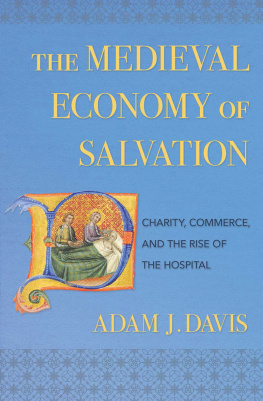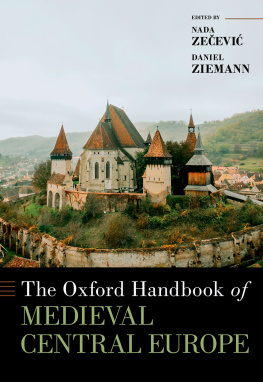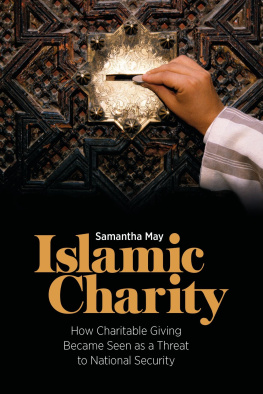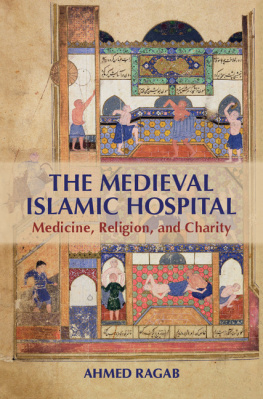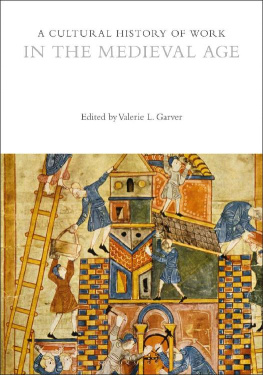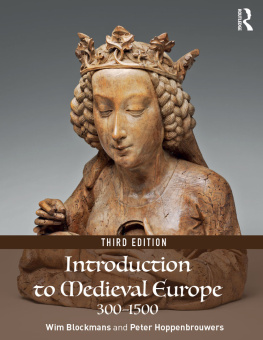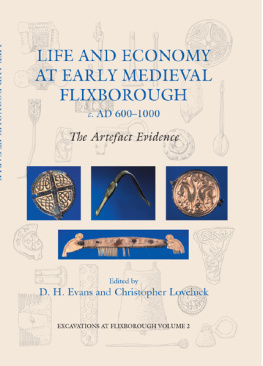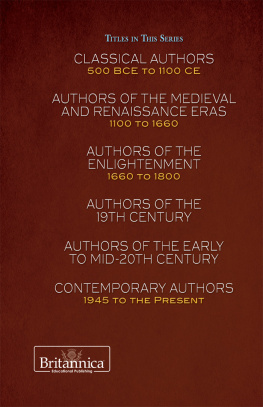A BBREVIATIONS
| AD | Archives dpartementales |
| AMC | Archives municipales et communautaires |
| BM | Bibliothque municipale |
| BnF | Bibliothque Nationale de France |
| Dupraz | Dominique Dupraz, Les cartulaires de lHtel-Dieu de Provins: dition critique (Thse, Lcole Nationale des Chartes. Paris, 1973) |
| Mansi | J. D. Mansi, Sacrorum Conciliorum nova et amplissima collectio (31 vols., Florence, 175998) |
| PL | Patrologiae cursus completus: Series Latina , ed. J. P. Migne (221 vols., Paris, 184455) |
A CKNOWLEDGMENTS
A year-long fellowship from the National Endowment for the Humanities in 201415 provided critical time for the research and writing of this book. I am grateful to Paul Reitter of The Ohio State University for inviting me to be a visiting fellow at Ohio States Humanities Institute during the very productive period of my NEH Fellowship. A Robert C. Good Fellowship from Denison University made it possible for me to spend the 201718 academic year as a visiting fellow at Clare Hall, Cambridge. The Cambridge University Library was an ideal place to complete this book, and Clare Hall provided a vibrant intellectual environment in which to think deeply and engage with other scholars. Im grateful to David Ibbetson, the president of the College, and the fellows of Clare Hall, for such a fruitful and enjoyable residency in Cambridge, and to our Clare Hall neighborsnow the dearest of friendsLaura and Chris Batten, Efrat and Roi Granot, Lily Panoussi and Konstantinos Orginos, and Slvia Gassiot Pintori and Llus To Figueras.
I thank the archivists at the Bibliothque Nationale de France, the Institut de Recherche et dHistoire des Textes, the departmental archives of the Aube (Troyes), Seine-et-Marne (Dammarie-les-Lys), and Marne (Reims), the municipal archives of Provins and Reims, and closer to home, the librarians at Denison University and Ohio State. Portions of some chapters of this book include reworked material that was previously published, including Preaching in Thirteenth-Century Hospitals, Journal of Medieval History 36, no. 1 (March 2010): 7289 (https://www.tandfonline.com/doi/full/10.1016/j.jmedhist.2009.12.002); The Economic Power of a Hospital in Thirteenth-Century Provins, in Center and Periphery: Studies on Power in the Medieval World in Honor of William Chester Jordan , ed. Katherine L. Jansen, G. Geltner, and Anne E. Lester (Leiden: Brill, 2013), 12134; and Hospitals, Charity and the Culture of Compassion in Medieval Europe, in Approaches to Poverty in Medieval Europe: Complexities, Contradictions, Transformations, c. 11001500 , edited by Sharon Farmer (Turn-hout: Brepols, 2016), 2345.
I would not have been able to write this book without meaningful research support and leave time from Denison University. Im grateful to my departmental colleagues at Denison for their generosity in reading and commenting on portions of this book. I also thank a group of Bexley/Columbus neighbors, who happen to also be fellow historians and friends, for their encouragement as I worked on this book: David Bernstein (who took the books author photo), Michael Flamm, Robin Judd, Scott Levi, Jennifer Siegel, Mitchell Snay, and Karen Spierling. Other friends have been equally supportive along the way: Or and Sharon Mars, Jessica and Andrew Mills, Kenny Steinman, and Rayna and Isaac Weiner. Sam and Elizabeth Dyson, dear college friends, have served as valuable sounding boards about academic publishing and so much else. Rick and Susan Bradley, old family friends, who, in 1980, saved the day by lending my father a typewriter in Paris when the one he was using broke, again helped make a book possible by repeatedly opening up the chambre de bonne in their Paris apartment to me while I was in France doing research for this book.
Although researching and writing a book can be a solitary endeavor, it can also provide an opportunity for forging fruitful dialogue with other scholars. I was able to try out some of the arguments in this book at several invited talks, and I thank the conveners for the opportunity to share my work at Cambridge University; All Souls College, Oxford; the Israel Institute for Advanced Study in Jerusalem; the cole des Hautes tudes en Sciences Sociales in Paris; the University of Tennessee at Knoxville; Loyola University of Chicago; Wittenberg University; and the University of Dayton. I am particularly indebted to Ted Evergates, who has been a generous resource for my frequent questions about Champagne and the medieval aristocracy. I also thank a number of colleagues for their assistance while I worked on this book, whether providing me with an obscure reference or a draft of their own work in progress, serving as a sounding board, or offering suggestions on a chapter: the late John Baldwin, Arnaud Baudin, Elisheva Baumgarten, Federico Botana, Connie Bouchard, Elma Brenner, James Brodman, Michael Cusato, O.F.M., David dAvray, Charles de Miramon, Sean Field, Lluis To Figuera, M. Cecilia Gaposchkin, Lindy Grant, Richard Firth Green, Dan Hobbins, Bill Jordan, Rick Keyser, Thomas Lacomme, Anne Lester, Amy Livingstone, Eyal Poleg, Julia Smith, Ben Soskis, Bertrand Taithe, Tamara Mann Tweel, John Van Engen, and Sethina Watson.
Sharon Farmer has been a generous interlocutor and reader of my work. Her own book on the survival strategies of the medieval poor was an early inspiration for this project, and a paper that I presented in Leeds in 2010, which was subsequently published in a collection that she edited, served as . Judah Galinsky has been a devoted interlocutor and collaborator who has allowed me to think comparatively about Jewish and Christian charitable practices.
Im deeply grateful to Miri Rubin, whose work Ive long admired, for her careful reading of the manuscript for the press, for her important suggestions and words of encouragement, and for her and Gareth Stedman Joness tremendously gracious hospitality to our entire family during our year in Cambridge. I also owe a debt of gratitude to Peter Brown, not only for what he taught me many years ago when I was in graduate school at Princeton, but for his recent work on Christian attitudes toward wealth and the afterlife in Late Antiquity, which has very much influenced my thinking about medieval ideas about charity. Finally, I wish to thank both the anonymous readers for their extremely valuable feedback, and Mahinder Kingra, who has been an unwaveringly supportive and responsive editor.
Noah and Ewa Davis, Naomi and Barry Schimmer, and Rebecca and Ben Kirshner have been enthusiastic cheerleaders during the years that I worked on this book project, and I thank them for their support. This book was what took our family to Cambridge for what was truly a magical year for us all. Im especially grateful to Alexandra for being willing to embark on that year-long family adventure and for all of her love, wise counsel, and steadfast encouragement while I worked on this book. This project has spanned the lifetimes of our children, Jonah and Elena, who bring us endless joy and delight.
This book is dedicated, with love, to my parents, who have both been so supportive of this project and so much else. It is possible that my fathers own scholarship on the history of abolitionism contributed in some small way to my own interest in the history of charity and the human impulse to provide assistance to the stranger. In recent years, as he has entered his nineties, my father has been on the receiving end of caregiving from a nursing home, care for which we are deeply appreciative, and which has often made me think about caretakers in distant times and places. The books dedication is inspired by the example of my parents own lifetime of generosity and kindness to others.

